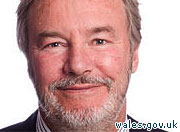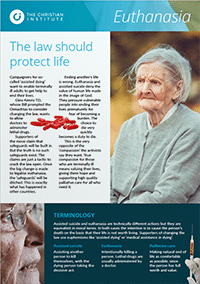There will be “no going back” if assisted suicide is legalised in Scotland, doctors’ leaders have told MSPs.
Speaking yesterday Dr Tony Calland, Chair of the BMA’s Medical Ethics Committee, cautioned: “Once you’ve crossed the rubicon of changing the law to allow premeditated hastening of the death of another person, you can never go back.”
Dr Calland also warned that if legislation allowing assisted suicide was passed it would inevitably “creep” into other areas.
Death
The End of Life Assistance (Scotland) Bill would allow the terminally ill to seek assistance in ending their lives.
The Bill, which was proposed by Independent MSP Margo MacDonald, is currently being examined by a Holyrood committee.
Dr Calland illustrated his case by pointing to the Netherlands where legislation was originally introduced to deal with just the terminally ill, and he warned that it has now grown to include people who are seriously ill and some children who are severely disabled.
Opposition
The Holyrood committee heard further evidence from Scotland’s religious leaders today.
Assisted suicide is currently illegal in Scotland and anyone involved in assisting suicide may be charged with culpable homicide.
MSPs are set to be given a free vote on the Bill in November.
Majority
Earlier this week, in a written submission to the Holyrood committee, it was revealed that BMA Scotland had warned that the majority of doctors were opposed to legalising assisted suicide in Scotland
In July a leading doctor warned that legalising assisted suicide would betray “Scottish values” for the benefit of a vocal few.
Dr Rosemary Barrett, Director of the Scottish Council on Human Bioethics, said: “The Bill is designed for people who believe their existence is ‘intolerable’. However, the truth is that Scotland offers excellent care for people suffering from extraordinary pain.
Pain
“Our palliative care services are capable of more than adequately managing physical pain. With such advanced medical services available, no person needs to experience ‘intolerable’ pain.”
In June a Holyrood consultation revealed that many Scots remain steadfastly opposed to it.
The consultation revealed that 86 per cent of respondents, some 601 people and organisations, were opposed to the Bill.


